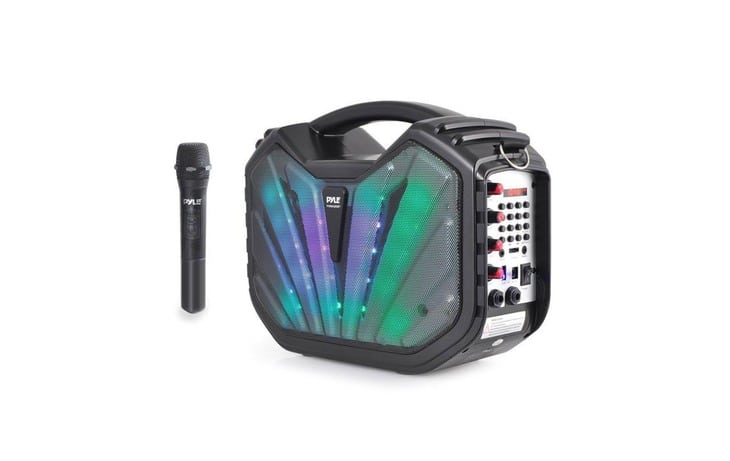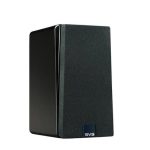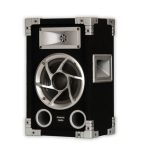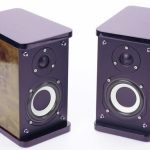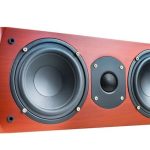One of the worst things you could put your regular stereo speakers through is a live karaoke performance. These speakers may be part of your top-of-the-line entertainment system with fancy features like surround sound. However, that doesn’t mean that they can handle anything you throw at them. Sure, they can play music and give you an immersive movie-watching experience, but when it comes to karaoke, you’re better off using dedicated karaoke speakers.
Why you Shouldn’t Use Regular Speakers for Karaoke
It is quite tempting to hook up your karaoke machine to your home theater or Hi-Fi speakers. After all, they’re all speakers, so what’s the worst that could happen?
To answer that rhetorical question: a lot. There is a reason why karaoke machines require karaoke speakers. It’s not a marketing gimmick. Regular speakers are just not designed for karaoke, and if you’re looking for reasons NOT to use them, here are a few that are definitely worth paying attention to.
Regular Speakers Don’t Support Live Vocal Frequencies.
Your karaoke experience will not be as rich or as satisfying if you use regular speakers. The reality is, that your Hi-Fi speakers cannot support the frequencies emitted by live vocals, so you’re likely to get a sound that’s muddy, suppressed, and distorted, especially when you hit those high notes.
The bottom line is, that using regular speakers for your karaoke performances will dramatically impact the sound quality. That’s the last thing you need, whether you’re performing for fun or looking to make some money in a karaoke competition.
Loud Performances Can Destroy Regular Speakers
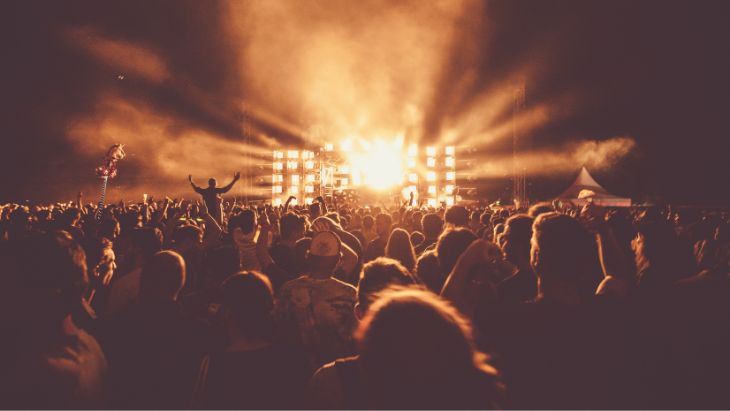
We all know that the best karaoke performances are also the most passionate ones. However, try screaming Chandelier into your home theater speakers, and you’ll quickly understand that they’re just not made to handle those high notes.
What happens is that they “clip,” which is speaker-talk for “get damaged.” This is, by far, the biggest reason why you shouldn’t substitute karaoke speakers with regular speakers. The possibility of severe and irreversible damage is extremely high. Even if they survive the vocal onslaught, the sound quality, which will be below par at best, will make for a rather disappointing musical experience.
Regular Speakers Aren’t Very Loud
If you’re performing at a small gathering in your home, then you probably won’t notice that your Hi-Fi speakers don’t offer much in the way of loudness. Using them at low volumes is a-okay, even if the sound quality will still not be as impeccable as that offered by karaoke speakers.
However, keep in mind that feedback, sudden loud noises, and loud music can still damage your stereo speakers severely. You will have to be extremely careful when using them for karaoke to avoid causing any significant damage.
Why Karaoke Speakers are Superior to Stereo Speakers
If you don’t own karaoke speakers, you might be wondering what all this propaganda against stereo speakers is about. Trust me; it’s not propaganda. It’s a proven fact that karaoke speakers are far superior, especially when it comes to living vocal performances.
They produce a clearer, more natural sound, plus they’re designed for belting your favorite songs. Rather than wax poetic about these powerful speakers, let’s look at why they’re the better choice as far as vocal production is concerned.
Karaoke Speakers Have Feedback Reducers/Eliminators
Professional vocal production speakers are equipped with mechanisms that reduce or eliminate feedback entirely. That means that they’re immune to damage from loud sounds and sudden high frequencies.
If you love karaoke, you may want to invest in such speakers because they’re far more resilient. Not even the highest of notes will damage them, plus your audience will thank you for the lack of deafening feedback.
Karaoke Speakers Offer More Vocal Clarity
One of the reasons why karaoke speakers are so enjoyable to use is that they produce a cleaner sound. There is no distortion at high frequencies, and the mids and basses are crisp and clear, not muddy or flat.
The reason why they sound so good is that some of these karaoke speakers are equipped with one or two tweeters. Tweeters are speakers that produce sharp mids and highs so that the overall vocal output is much more natural. In high-end karaoke speaker models, you might find two tweeters, which means double the vocal clarity.
Karaoke Speakers are Better Suited to Loud Sounds

If you need a public address (PA) system in a hurry, you can convert your karaoke speakers into powerful PA speakers. Since they’re equipped with damage prevention mechanisms such as overload protection, these speakers can get very loud.
Professional singers would not sound as clear as they do were it not for dedicated professional vocal speakers. Similarly, a karaoke speaker will keep your voice crisp and clear even at louder volumes, and you won’t have to worry about damaging it no matter how much you turn up the volume. That makes it perfect for announcements, singing, lectures, and all other live audio applications.
Karaoke Speakers May Come with Special Features
Apart from their superior sound quality and durability, karaoke speakers have one other advantage: they can be fitted with special features such as LED lights that pulse to the music’s beat.
These special effects won’t necessarily contribute to your performance’s sound fidelity, but they do enhance your karaoke experience. After all, you can’t have a party without some flashing lights to set the mood.
Karaoke Speakers vs. Regular Speakers: Bottom Line
It’s pretty simple: if you want a better sound, louder volumes, and more durable builds, then you need to get a karaoke speaker. They’re built better, equipped with superior sound production components, and are more likely to survive loud sounds and feedback.
Your regular stereo speakers are great for home entertainment and maybe some moderate partying. However, when it comes to karaoke, you’ll be stifling your performances if you settle for anything less than a dedicated karaoke speaker.
It’s not really a debate, but when it comes to karaoke speakers vs. regular speakers, the better option by unanimous decision is, and always will be, a karaoke speaker.
Michael Evanchuk is a San Francisco-based sound engineer with 20 years’ experience installing, troubleshooting, and repairing commercial, automotive, and household sound equipment. Evanchuk owns an auto stereo center, where he offers highly competitive car audio installation and repair services. He has written dozens of articles on different sound engineering topics, all of which have been published in leading journals, blogs, and websites.

